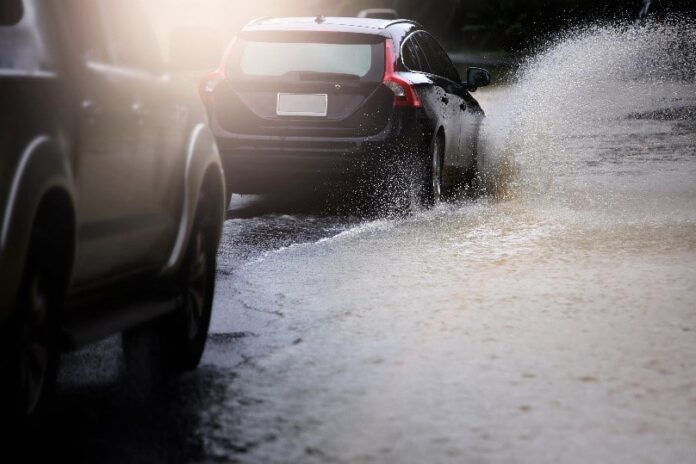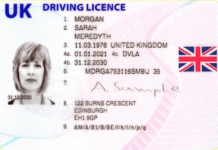Driving in heavy rain: Only half of Brits reduce speed in heavy rainfall
25 million drivers don’t slow down in wet conditions
· 1 in 8 have had an accident in wet and windy weather
· Motoring experts’ advice for driving in heavy rain
Driving in heavy rain and flooding can be very dangerous. And only half (51%) of British drivers slow down whilst driving in these conditions, meaning 25 million drivers don’t.
Women were revealed to be slightly more likely to slow down in the rain (52% to 48% for men), in a study by ATS Euromaster. It also revealed younger drivers (18-24s) are the least likely to slow down, with less than a third saying they do (29%), compared to 66% of over 55s. Only 8% of new drivers (less than a year) admit to slowing down in heavy rain.
There’s an average of 16 injuries for every rainy day across the UK*, whilst 1 in 8 have admitted to having had some sort of accident in wet and windy weather. A third of drivers said they feel very unsafe driving in heavy rain, whilst one in ten (11%) will try and find a different way to travel.
If you do have to drive in heavy rain, Simon Waye, technical engineer at ATS Euromaster has provided tips to driving safely:
Before you set-off
1. Check your tyres
Tyres with very low tread wear seriously affect the grip they have on the road. You can check your thread by using a penny upside down in between the tyre tread if you can see the top of the Queen’s head, the treads are worn and need replacing. The legal limit is at least 1.6mm across the central three-quarters of the tyre. You may want to consider getting all season tyres too, which can be more effective at gripping.
2. Check your wiper blades
It’s important to check that your front and back wiper blades are functioning and if not then get these replaced.
3. Fill up your tank
Getting stuck in traffic in bad weather increases your fuel consumption so make sure you have enough fuel in your car.
4. Check for any weather advice
Check out your local news bulletins or online for any road closures or any flooding that is affecting travel.
Whilst driving:
1. Use dipped headlights (and avoid a £50 fine!)
If visibility is seriously reduced due to rain and spray from the roads, you should use your dipped headlights to help you and others. The research revealed almost two thirds (62%) of British drivers are not aware that using these will help improve visibility, despite the fact that it could land you a fine.
Failing to use the appropriate lights when you are unable to see for more than 100 metres ahead of you could land you a £50 on-the-spot fine if stopped by police.
2. Reduce your speed
During heavy rainfall, the roads will inevitably be more slippery than usual, which affects your braking time and general control of the car. Give yourself more time to react. Highways England says you should slow down and increase the gap between you and the vehicle in front to at least four seconds.
3. Be careful when braking
Braking or driving too fast in wet conditions can cause aquaplaning where your tyres lose grip of the road. If your steering suddenly feels light, this could be happening. If this does happen, ease off the accelerator, don’t brake and allow yourself to slow down until you have regained grip.
4. Be wary of puddles
Don’t drive through a puddle if you can’t see the bottom of it. This can be very damaging to your car, and you could become stuck. If you do drive through a big pool of water, it’s important to check your brakes afterwards.
5. Keep your aircon on
Driving in the rain can mean your windows are likely to quickly steam up. Make sure you have your air conditioning on to make sure your visibility isn’t reduced. Driving with misty windows could land you a £1,000 fine and three points on your license.
For more of the research and tips to drive safely in bad weather, please visit: https://blog.atseuromaster.co.uk/news/winterproofing-and-hazardous-driving
Help keep news FREE for our readers
Supporting your local community newspaper/online news outlet is crucial now more than ever. If you believe in independent journalism, then consider making a valuable contribution by making a one-time or monthly donation. We operate in rural areas where providing unbiased news can be challenging. Read More About Supporting The West Wales Chronicle
























